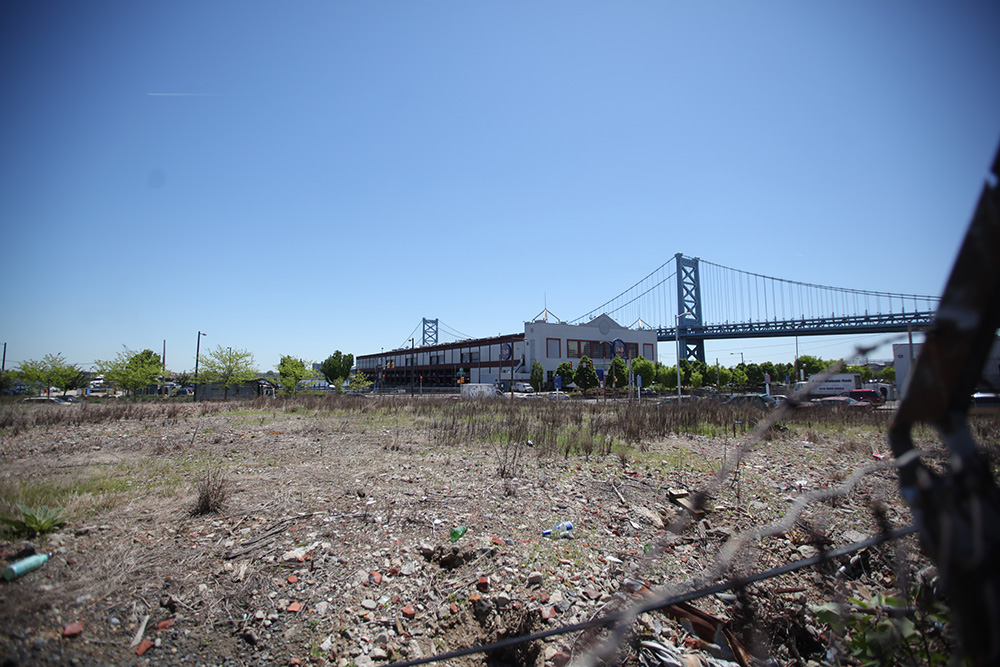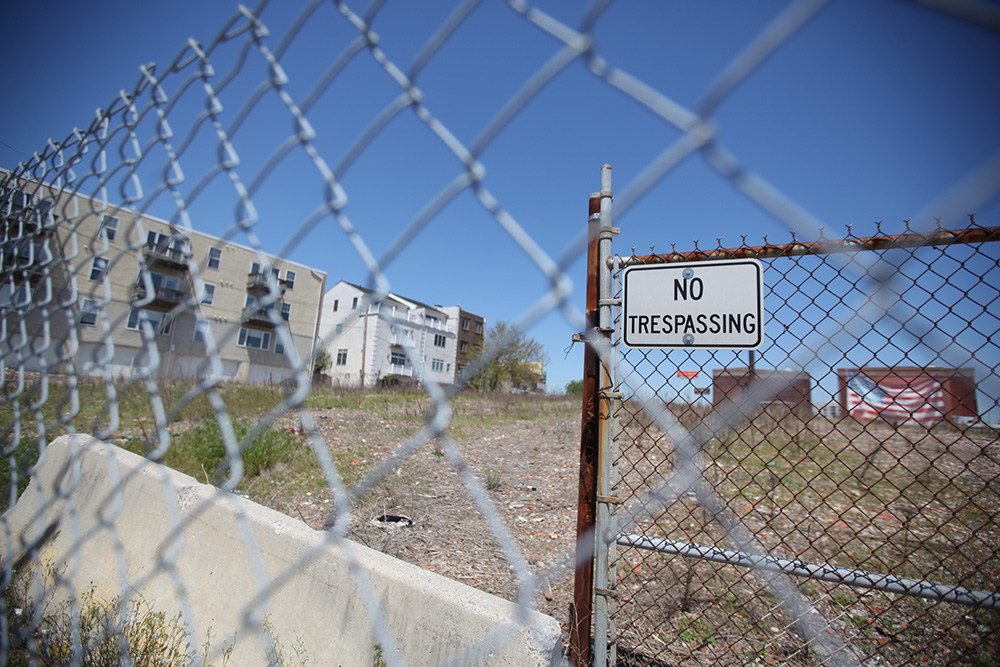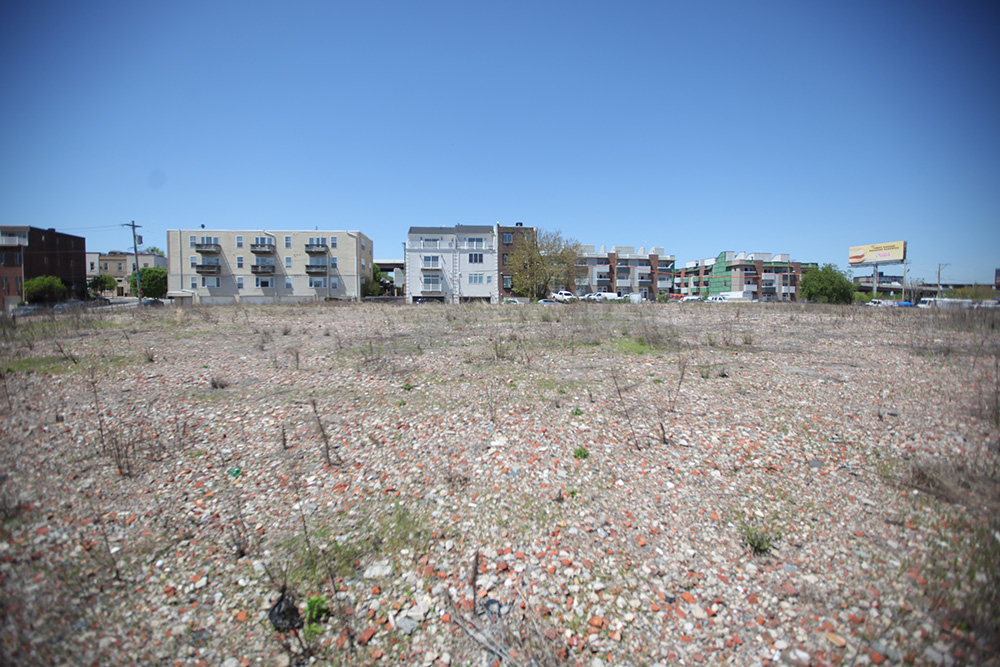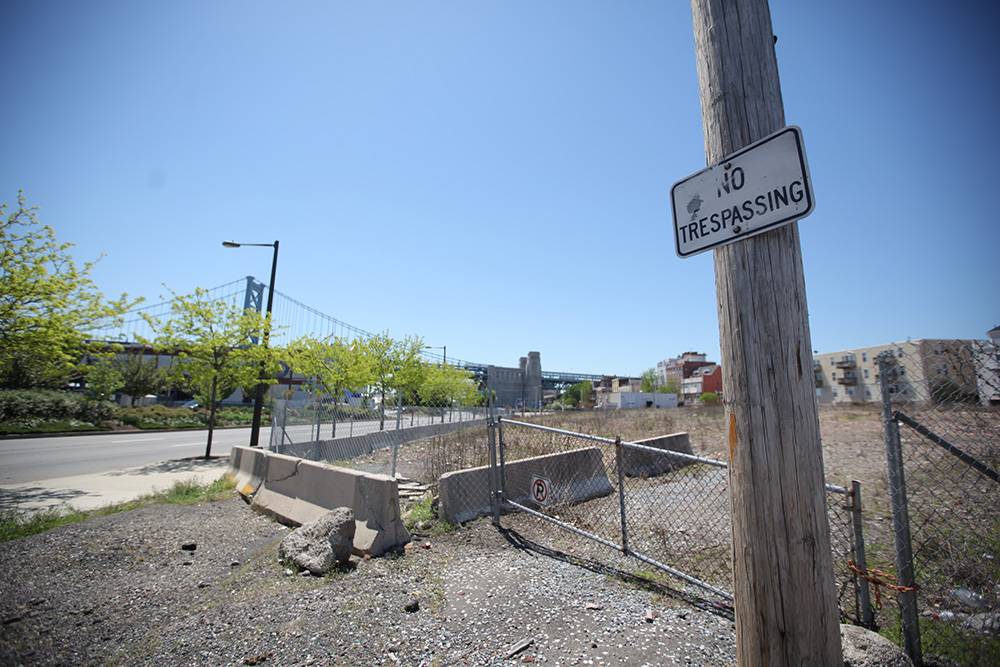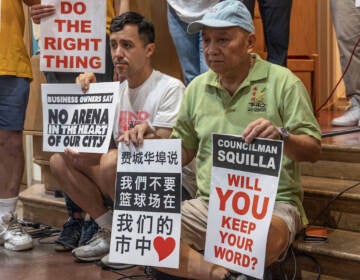The cost of doing civics: Old City Civic Association disbands its zoning operation
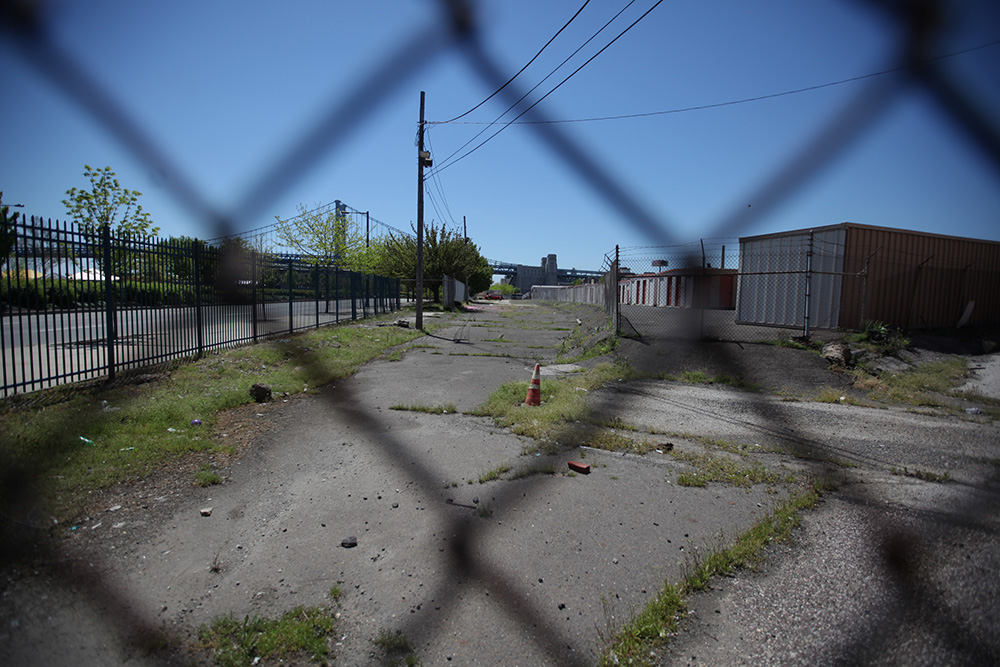
The Philadelphia World Trade Center, a five-and-a-half acre complex of international commerce at Columbus Blvd. and Callowhill St., has had more impact on the development of the Central Delaware than any other building that doesn’t exist.
First proposed in the late 1980s, the project—which included four towers, one of which was to grow to 636 feet—fell apart around 2006, when the city adopted a zoning overlay for Old City and the surrounding area that included a 65-foot-height limit. The overlay bill, introduced by then-Councilman Frank DiCicco, was apparently never intended to include the World Trade Center site, and shortly after its adoption it was replaced with another overlay that excluded the site.
But by then, developer Waterfront Renaissance Associates was fed up with Philadelphia’s confounding zoning process.
It sued the city. It sued Brian Abernathy, an aide at the time to Councilman DiCicco. It sued the River’s Edge, Penn’s Landing North, and Old City civic associations for, among other things, conspiracy to derail the project and breach of contract, over an agreement the groups had made to support zoning changes for the site.
Waterfront Renaissance Associates has recently proposed a vastly different residential and commercial project for the site, which it still owns.
If that project moves forward, the developer won’t have Old City Civic or River’s Edge to contend with: both have disbanded their formal zoning operations, because the cost of liability insurance became prohibitive.
According to Andy Sacksteder, president of River’s Edge, the legal fees associated with the World Trade Center lawsuit exceeded $70,000, causing the group’s insurer to drop them. The result, Sacksteder said, is that losing that insurance “really changed the tone of how we comment on issues.” River’s Edge now still meets with developers informally to discuss projects, but did not sign up with the Planning Commission as a Registered Community Organization because it can’t afford the risk that its official positions will draw more lawsuits from developers.
Last week, Old City Civic Association—a well-established RCO working in Philadelphia’s first neighborhood—summarily suspended its developments and liquor committees, as first reported by the Daily News. OCCA president Ryan Berley said that the group’s directors and officers insurance (D&O) was dropped because it has been hit with too many lawsuits over the past few years, including the one filed by Waterfront Renaissance.
Berley said that after OCCA’s insurer—which he declined to name—rescinded the D&O insurance, the group went around to between 20 and 30 companies seeking a provider.
OCCA wouldn’t say how much the insurance previously cost, but an informal survey of other civic associations suggests the annual premium is somewhere between $1,000 and $2,000.
“The quotes we got were more than ten times what we had been paying,” Berley told PlanPhilly, “and the deductible was overwhelming.”
Without a formal committee to review zoning applications, Old City Civic Association will no longer act as a Registered Community Organization for the neighborhood, and in fact has already withdrawn its status as such, according to Berley. Old City District, a Business Improvement District, will still perform the tasks of an RCO, but its central mission—improving the commercial environment and attracting tourism—is different from Old City Civic Association’s, which was preserving the historic character of the community.
Lawsuits which plaintiffs file only to intimidate defendants, but don’t actually intend to win, are known as SLAPP suits—Strategic Lawsuits Against Public Participation. There is no tell-tale sign that a certain suit is a SLAPP suit when it’s filed, and Waterfront Renaissance’s attorney Thomas Leonard could not be reached for comment on the merits of the World Trade Center litigation, which the developer has not won.
But Joe Schiavo, chair of OCCA’s now-defunct liquor committee and vice chair of the developments committee, pointed out last week that the group has not been held liable in any of the lawsuits filed against it, and yet it has still had to pay its lawyers for legal defense. The insurance company, he said, has not had to settle any claims; the cost of litigation alone caused them to dis-insure OCCA.
“In Philadelphia—where litigation is not a service, it’s an industry—organizations and individuals are going to run into these problems,” Schiavo said.
Representatives of other civic groups reacted to the death of Old City’s development committee with trepidation. Some were wary to weigh in at all for fear of giving developers the idea that they could sue them into submission.
“The fact that the phenomenon has a name and developers are tuned into it is scary,” said Jeff Hornstein, president of Queen Village Neighbors Association.
Larry Freedman, chair of Northern Liberties Neighborhood Association’s zoning committee since the late 1980s, said he isn’t aware of any lawsuits brought against the group by developers. He said it’s his job to be aware of potential lawsuits—though the group has D&O insurance—and that he’s worked hard to build relationships with people who build in Northern Liberties repeatedly.
“It took me a while to find what I felt was the way to approach this stuff, but it seems to work,” Freedman said. “Just be so nice that people can’t take it.”
Old City Civic had a mixed reputation. Accused of NIMBYism and anti-development sentiment, the group fought hard to rein in the scale of projects proposed in the neighborhood.
“There’s a philosophical question that underpins every zoning committee: ‘How much density do we want?’” said Jeff Hornstein of QVNA. “We’ve definitely erred on the side of density.”
But Hornstein was quick to point out that there is hardly a spot in Queen Village where a building of any major scale could be built, and he said that the people who dealt with zoning at OCCA are “some of the best folks in the civic world.”
First-District Councilman Mark Squilla, who represents Old City, said that OCCA could at times be “a little strict” about certain rules, like height limits, but said that the vast majority of its opinions on proposed developments came in the form of letters of support.
“They were sticklers on certain things and they would fight their points to the end,” Squilla said. “You’ve got to give them credit. They had good heart, and they did what they thought was the best for the community.”
Development Workshop’s Craig Schelter, who has tangled with OCCA over height limits on the waterfront and elsewhere in the past, said, “It’s actually hard for me to believe, because people like Joe Schiavo and Richard Thom have been fixtures in the community for a long time, and have done a lot of service.”
Karen Thompson of the Delaware River Waterfront Corporation, a local RCO with boundaries that overlap Old City’s, said she was surprised to hear about the dissolution of OCCA’s zoning operation. She said the Old City District can handle the RCO duties, but that she feels it’s “an important thing” for a neighborhood to have a purely civic group working to protect its character.
Squilla said he is talking to members of OCCA about how it might move forward.
There’s a bigger question, though. The new zoning code formalized the process of neighborhood input in zoning decisions, requiring developers to meet with communities and notify neighbors when they plan to build. Andy Sacksteder, of River’s Edge Civic Association, said his group chose not to become an RCO because that very process could expose the group to liability.
“The city has created a system and a framework to get civic engagement,” Sacksteder said, “without providing a means of protection for those asked to become engaged.”
Larry Freedman of NLNA said that even though his group hasn’t been subject to intimidating lawsuits, he recognizes that any time it takes a hard stance against a project, the possibility of litigation looms.
“Anybody can sue anybody. We all know that,” Freeman said.
“Don’t say anything,” he added, “because we don’t want to jinx this thing.”
WHYY is your source for fact-based, in-depth journalism and information. As a nonprofit organization, we rely on financial support from readers like you. Please give today.



